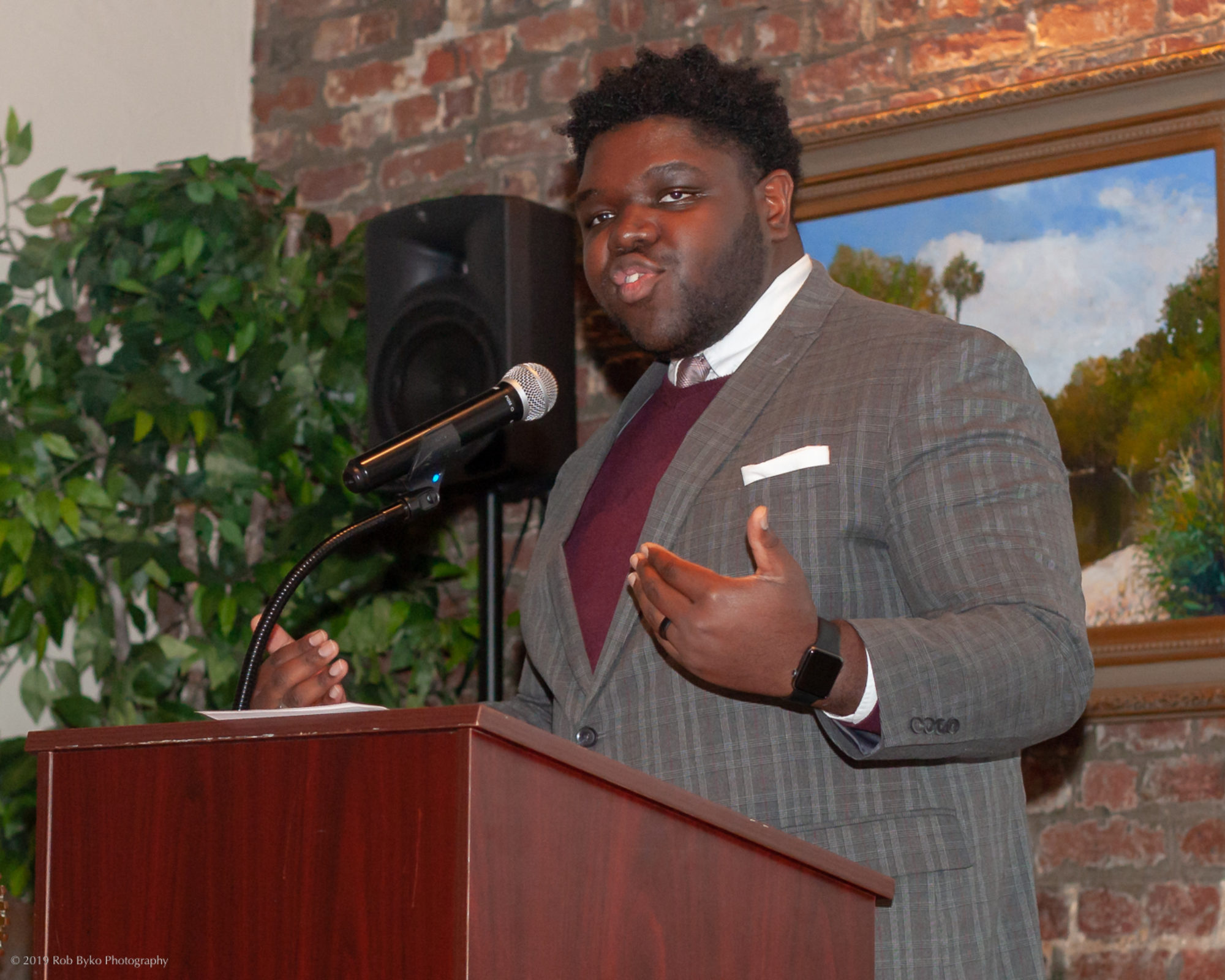August 2, 2016: Virtually every Rotarian’s hand went up when guest speaker, Cindy Alewine, President and Chief Executive Officer of the Alzheimer’s Association of South Carolina, asked how many of us were directly or indirectly affected by Alzheimer’s disease. It’s not surprising that nearly everyone is the room is impacted in some way by Alzheimer’s since it is the sixth leading cause of death in the United States and five million of our citizens are suffering from this horrible disease. In fact, as we learned from Ms. Alewine, one in nine people 65 or older suffers from Alzheimer’s or some form of dementia and one in three seniors dies from them.
And the really frightening part is that the prevalence of the disease is growing quickly. The Alzheimer’s Association projects that by 2050, the number of people age 65 and older in the US with Alzheimer’s disease may nearly triple, from 5.2 million to a projected 13.8 million. In SC, there are now 84,000 Alzheimer’s patients and that number is projected to grow to 120,000 by 2025.
Ms. Alewine also pointed out that we are seeing Alzheimer’s in younger and younger populations, some individuals falling victim in their forties and fifties. Today, 200,000 individuals under the age of 65 have early onset Alzheimer’s.
Of the leading top 10 causes of death in the United States, Alzheimer’s is the only disease in America that cannot be prevented, cured or even slowed.
The cost of Alzheimer’s to patients, families and communities is astronomical. Here are the economic facts according to our speaker:
- In 2016, total payments for health care, long-term care and hospice are estimated to be $236 billion for people with Alzheimer’s and other dementias, with just under half of the costs borne by Medicare.
- Medicare and Medicaid are expected to cover $160 billion, or 68 percent, of the total health care and long-term care payments for people with Alzheimer’s disease and other dementias.
- Nearly one in every five Medicare dollars is spent on people with Alzheimer’s and other dementias. In 2050, it will be one in every three dollars.
Unless a cure or therapy is discovered, in 2050, Alzheimer’s is projected to cost more than $1 trillion (in 2016 dollars). Costs to Medicare will increase 360 percent. This dramatic rise includes a nearly five-fold increase in government spending under Medicare and Medicaid and a nearly five-fold increase in out-of pocket spending.
In addition to the soaring costs of Alzheimer’s, the emotional burden for families and care-givers is debilitating as bank accounts and savings plans are emptied, second and third jobs required, retirements postponed and extensive sacrifices made to care for Alzheimer’s patients.
But perhaps the greatest expense is to those watching their loved ones gradually slipping away, losing their abilities, talents, and their very personalities.
We need a cure and we need it fast. Ms. Alewine told us that it is estimated that we need $2 Billion in National Institutes of Health (NIH) and other government and private funding to support the research desperately searching for understanding of the disease and for diagnostics, therapies and, a cure. There are many ways that money is raised towards this end, including the well-known Walk to End Alzheimer’s walks. These events have raised hundreds of thousands of dollars for research and support but clearly more is needed. There are walks scheduled in Charleston on September 9th and in Bluffon on October 29th.
While there is no cure yet, research is underway and there is hope for a major breakthrough within five years, according to Ms. Alewine. In the meantime, it is important to know that 80% of Alzheimer’s patients also have cardiovascular disease which suggests that regular physical exercise, a diet full of fruit, vegetables, low sodium and low sugar along with limited red meat consumption helps reduce risks. Additionally, studies suggest that maintaining strong social connections and intellectual activity provide weapons to fight off Alzheimer’s.
Thank you, Cindy Alewine, for an important, if sobering, presentation of Alzheimer’s disease and the work of the Alzheimer’s Association of SC. The Association provides education, financial and emotional support to South Carolinians, and is a primary fund-raising vehicle to which we can all contribute to help eliminate this scourge in our state and country. Their website is www.alz.org. Contact them to volunteer your time and resources. Let’s get rid of this disease!
— Cheryl Kaynard, Keyway Committee


